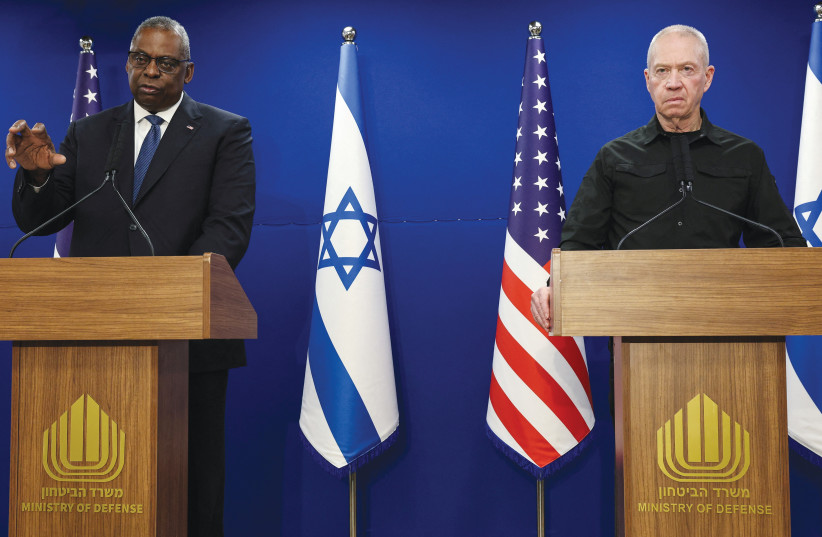Israel won’t tolerate continued Hezbollah attacks, Defense Minister Yoav Gallant told US Secretary of State Lloyd Austin amid the Biden admiration fears that Israel would launch a summer campaign against the Iranian proxy group.
“The State of Israel will not tolerate threats against its citizens and violations of its sovereignty and will take the measures required to ensure their security,” Gallant said late Wednesday night.
Gallant detailed for Austin the “ongoing attacks conducted by Hezbollah on Israel’s northern communities,” according to the Defense Ministry.

Last week, White House National Security Communications Advisor John Kirby told reporters in Washington that the US doesn’t want "a second front” on Israel’s northern border.
“We don't want to see the conflict widen and deepen. We don't want to see the fighting that has occurred between Hezbollah and Israeli Defense Forces up in the north continue; we certainly don't want to see it become more aggressive.
“We're going to continue our conversations with our Israeli counterparts, continue our conversations with Lebanese counterparts as well, about not letting the tensions up there boil over to the point where it truly does deepen and widen the conflict in a way that could alleviate any kind of pressure on Hamas. And I think I'll just need to leave it at that,” Kirby said.
Cross-border violence between the IDF and Hezbollah increased after the Hamas-led attack on Israel in October along the country’s southern border but has not escalated to the point where it is considered an all-out war.
The US and France are working on a diplomatic solution by which Hezbollah would agree to withdraw to the Litani River, leaving a buffer zone, in that southern area of its country.
Such a move would be in keeping with United Nations Security Council Resolution 1701, approved in 2006, which set the ceasefire terms that ended the Second Lebanon. That resolution mandates that the Lebanese army is the only armed group that can be in that border area and that the existence of any armed non-state actor, such as Hezbollah, is in violation of those ceasefire terms.
Over 50,000 Israelis were evacuated from the country's northern border on October 7 and the IDF has not set a date by which it would be safe for them to return.
